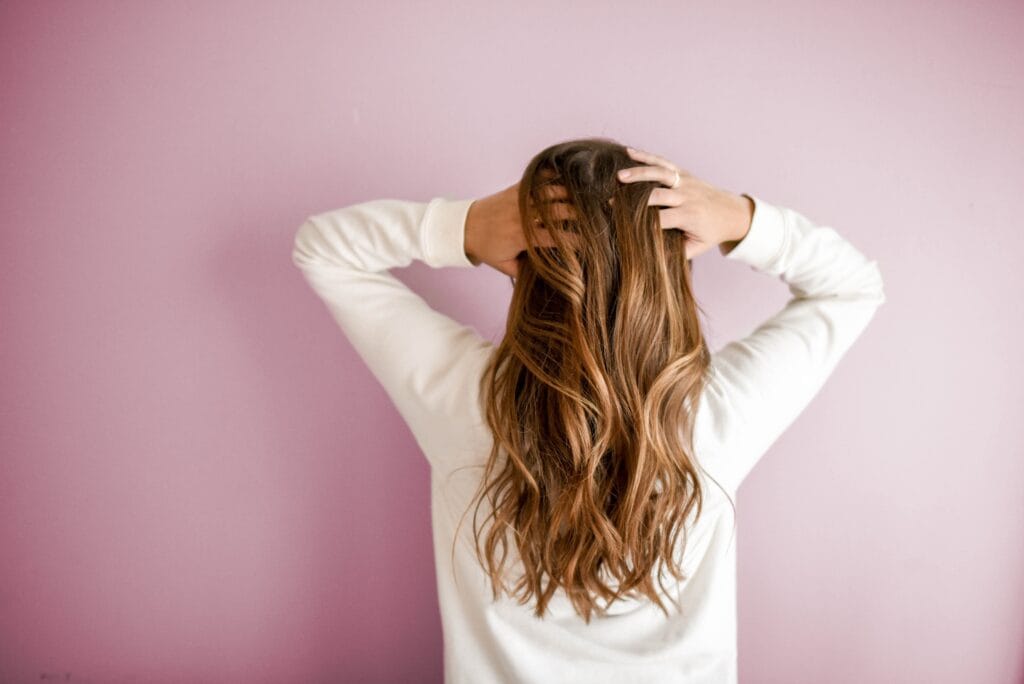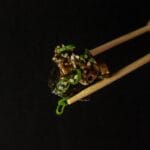
Our hair is a reflection of our lifestyle. Let’s discover the total hair care, top nutrients and treatments not to be neglected to have healthy and shiny hair.
Understanding Your Hair Type
Understanding your hair type is essential for proper hair care. Different hair types have different needs, and catering to these specific needs will help you achieve healthier and more manageable hair. Here are a few key factors to consider when determining your hair type:
1. Texture
The texture of your hair refers to the diameter of each individual strand. Hair can be broadly categorized into three main types: fine, medium, and coarse. Fine hair strands are usually thin and delicate, while coarse hair strands are thicker and more robust. Medium hair falls somewhere in between. Determining your hair texture can help you choose the right products and styling techniques that will enhance the natural beauty of your hair.
2. Curl Pattern
Curls come in various patterns, ranging from loose waves to tight coils. Understanding your curl pattern is crucial because it influences how your hair absorbs and retains moisture, as well as how it behaves when styled. Hair can be classified into four main curl types: straight, wavy, curly, and coily. Identifying your specific curl pattern will help you select the appropriate products and styling methods that will emphasize and define your curls.
3. Porosity
Hair porosity refers to how well your hair absorbs and holds moisture. It is determined by the condition of the hair cuticle, which is the outermost layer of each hair strand. Low porosity hair has a tightly closed cuticle, making it resistant to moisture absorption. High porosity hair, on the other hand, has a more open cuticle structure, allowing moisture to be absorbed easily but also causing it to escape quickly. Understanding your hair’s porosity level will enable you to choose the right products and techniques to moisturize and hydrate your hair effectively.
4. Scalp Condition
Another crucial factor to consider is the condition of your scalp. A healthy scalp provides a conducive environment for hair growth. Factors such as oiliness, dryness, or sensitivity can affect your overall hair health. It is important to address any scalp issues and use products that specifically target your scalp’s needs to maintain optimal hair health.
5. Overall Density
Hair density refers to the number of hair strands on your scalp. It can range from thin to thick. Understanding your hair density can help you determine the appropriate styling techniques and products that will add volume and fullness to your hair or, conversely, help manage and reduce bulkiness.
By understanding your unique hair type, you can make informed decisions about the best care and styling methods for your specific needs. This knowledge will enable you to choose the right products, techniques, and routines that will help you achieve and maintain healthy, beautiful hair.

Total Hair Care : Importance of a Balanced Diet for Hair Health
A balanced diet plays a crucial role in maintaining the health of our hair. The nutrients we consume have a direct impact on the strength, growth, and appearance of our hair. Here are a few reasons why a balanced diet is important for hair health:
- Nutrient supply: Hair follicles require essential nutrients to function properly and promote healthy hair growth. A balanced diet rich in proteins, vitamins (especially B vitamins), minerals (such as iron and zinc), and healthy fats ensures an adequate supply of these nutrients to the hair follicles. Proteins are particularly important for hair as they form the main structural component of hair strands.
- Stimulates growth: Certain nutrients, like biotin and folic acid, promote hair growth. Biotin, also known as vitamin B7, helps strengthen the hair shaft and prevent hair breakage. Folic acid, on the other hand, aids in the production of red blood cells, which transport oxygen and nutrients to the hair follicles. Including foods rich in these nutrients, such as eggs, nuts, leafy greens, and whole grains, in your diet can help stimulate hair growth.
- Prevents hair loss: Nutritional deficiencies can lead to hair loss. For instance, insufficient iron levels can cause anemia, which disrupts the hair growth cycle and leads to hair loss. Consuming iron-rich foods like lean meats, beans, and leafy greens can help prevent this. Omega-3 fatty acids, found in fish and nuts, can also promote scalp health and reduce hair loss.
- Improves scalp health: A healthy scalp is essential for maintaining healthy hair. Nutrients like vitamins A and E, found in fruits and vegetables, help nourish the scalp and improve its overall health. A diet rich in antioxidants supports the health of hair follicles and prevents scalp problems like dandruff and itchiness.
- Enhances hair strength and thickness: A balanced diet that includes foods with high nutrient content, such as spinach, sweet potatoes, avocados, and citrus fruits, can strengthen the hair shaft, making it less prone to damage and breakage. These foods are rich in vitamins C and A, which help in collagen production and sebum production, respectively. Collagen is a protein that strengthens the hair strands, while sebum moisturizes the scalp and keeps the hair follicles healthy.
A balanced diet is essential for maintaining healthy hair. By providing the necessary nutrients, a balanced diet stimulates hair growth, prevents hair loss, improves scalp health, and enhances the strength and thickness of the hair strands. To promote hair health, it is important to include a variety of nutrient-rich foods, such as proteins, vitamins, minerals, and healthy fats, in your diet.
Total Hair Care : Choosing the Right Hair Care Products
Choosing the right hair care products is essential for maintaining healthy and beautiful hair. With so many options available in the market, it can be overwhelming to find products that suit your specific hair type and address your individual hair concerns. Here are some tips to help you make the right choices:
- Identify your hair type: Before purchasing any hair care products, it is crucial to understand your hair type. Is your hair oily, dry, or a combination of both? Do you have straight, wavy, or curly hair? By identifying your hair type, you can find products specifically formulated to cater to your hair’s needs.
- Consider your hair concerns: In addition to your hair type, consider any specific concerns you may have, such as dandruff, frizz, or breakage. Look for products that target these concerns and contain ingredients known to address them effectively. For example, if you have dry hair, opt for moisturizing shampoos and conditioners that contain ingredients like argan oil or shea butter.
- Check the ingredients: An essential aspect of choosing hair care products is checking the ingredients list. Avoid products that contain harsh chemicals, such as sulfates and parabens, as they can strip your hair of its natural oils and cause damage. Instead, opt for products with natural and nourishing ingredients, such as aloe vera, coconut oil, or silk proteins.
- Read customer reviews: Customer reviews can provide valuable insights into the performance and effectiveness of hair care products. Take the time to read reviews and learn from other people’s experiences. Look for products that have consistently positive reviews and high ratings, as they are more likely to deliver satisfactory results.
- Consult a professional: When in doubt, it is always a good idea to consult a professional hairstylist or dermatologist. They can assess your hair’s condition and provide personalized recommendations for suitable products. They can also suggest professional-grade products that may offer better results than over-the-counter alternatives.
Remember, choosing the right hair care products is a crucial step in maintaining healthy hair. By considering your hair type, specific concerns, ingredients, and customer reviews, you can make well-informed decisions that will help you achieve the desired results.
Total Hair Care : Developing a Regular Hair Care Routine
Developing a regular hair care routine is essential for maintaining healthy and beautiful locks. By establishing consistent habits, you can ensure that your hair remains nourished, strong, and vibrant. Here are some tips to help you develop a regular hair care routine:
- Identify your hair type: Before you can create an effective hair care routine, it’s important to understand your specific hair type. Is it oily, dry, or a combination of both? Does it tend to be frizzy or limp? By knowing your hair type, you can choose products and treatments that are tailored to your specific needs.
- Choose the right products: Once you know your hair type, select hair care products that are formulated to address its specific requirements. Look for shampoos and conditioners that are free from harsh chemicals and contain nourishing ingredients like vitamins, essential oils, and proteins. Additionally, consider using a leave-in conditioner or hair oil to provide extra moisture and protection.
- Establish a washing routine: How often you wash your hair depends on your hair type and personal preference. While some people may need to wash their hair daily, others can go a few days without shampooing. Over-washing can strip the hair of its natural oils, leading to dryness and damage. Experiment with different washing frequencies to find what works best for you.
- Use the right techniques: Proper technique is crucial for maintaining the health of your hair. When shampooing, focus on the roots and scalp, gently massaging with your fingertips. Avoid using excessive force or rubbing the hair vigorously, as this can cause breakage. When conditioning, apply the product from mid-length to the ends, avoiding the scalp. Allow the conditioner to sit for a few minutes before rinsing thoroughly.
- Incorporate regular treatments: In addition to regular washing and conditioning, treat your hair to occasional deep conditioning treatments, hair masks, or hot oil massages. These treatments can help repair and strengthen damaged hair, restore moisture and shine, and promote overall hair health. Consider including these treatments in your routine once or twice a month.
By developing a regular hair care routine that takes into account your hair type and specific needs, you can ensure that your locks remain healthy, strong, and beautiful. Remember to be patient and consistent, as it may take time for your hair to show the results of your diligent care. With proper care and attention, you can have the lustrous, head-turning hair you desire. Protecting Your Hair from Heat and Environmental Damage
- Use heat protection products: When styling your hair with heat tools such as curling irons or straighteners, it is crucial to use heat protection products. These products help to create a barrier between your hair and the heat, preventing damage and reducing the risk of breakage. Look for heat protectant sprays or creams that contain ingredients like silicone or keratin, which can help to shield your hair from the high temperatures. Apply the product evenly throughout your hair before using any heat styling tools.
- Limit heat exposure: While heat styling can give you the desired look, excessive and prolonged use of heat can cause significant damage to your hair. To protect your hair, try to minimize the use of heat styling tools. Embrace natural hairstyles or opt for heatless alternatives such as braids, twists, or buns. If you do use heat styling tools, set them to a lower temperature and limit the time they come in contact with your hair to reduce the risk of damage.
- Shield your hair from the sun: Prolonged exposure to the sun’s harmful UV rays can leave your hair dry, brittle, and prone to breakage. To protect your hair from the sun, wear a hat or use a scarf to cover your head when spending extended periods outdoors. Additionally, consider using a leave-in conditioner or hair serum with UV protection to create a barrier against sun damage. These products can help to moisturize and nourish your hair while providing an extra layer of defense against environmental stressors.
- Avoid excessive chemical treatments: Chemical treatments like coloring, perming, or relaxing can weaken the structure of your hair and make it more susceptible to damage. If possible, limit the frequency of such treatments or opt for less damaging alternatives like semi-permanent dyes or natural hair care options. When using these treatments, follow the instructions carefully, and consider seeking professional help to minimize the risk of over-processing and damage.
- Hydrate and nourish your hair: Keeping your hair well-hydrated and nourished is essential for overall hair health. Use a moisturizing shampoo and conditioner that suits your hair type to restore moisture and prevent dryness. Additionally, incorporate deep conditioning treatments into your hair care routine at least once a week to provide intense hydration and nourishment. Look for products with natural ingredients like argan oil, shea butter, or aloe vera, as these can help to repair and protect your hair from environmental damage.
By following these tips, you can protect your hair from heat and environmental damage, keeping it healthy, vibrant, and resilient. Remember, proper hair care is a long-term commitment, so be consistent and patient for the best results.
The Benefits of Deep Conditioning Treatments
Deep conditioning treatments are an integral part of a comprehensive hair care routine. These treatments offer a range of benefits that can help improve the health, strength, and appearance of your hair. Whether you have dry, damaged, or frizzy hair, incorporating deep conditioning treatments into your regular regimen can make a noticeable difference. Here are some of the key benefits of deep conditioning treatments:
- Moisturizes and Hydrates: One of the primary benefits of deep conditioning treatments is their ability to moisturize and hydrate the hair. These treatments contain ingredients that penetrate deep into the hair shaft, providing essential moisture and hydration to dry and brittle hair. Regular deep conditioning can help restore moisture balance, leaving your hair soft, supple, and more manageable.
- Repairs Damaged Hair: Over time, our hair can suffer damage from various sources such as heat styling, chemical treatments, and environmental factors. Deep conditioning treatments are formulated with ingredients that help repair and strengthen damaged hair. They can help minimize the appearance of split ends, reduce breakage, and restore the overall health of your hair.
- Improves Elasticity: Deep conditioning treatments can improve the elasticity of your hair, making it more resistant to breakage. When your hair is well-nourished and properly moisturized, it becomes more flexible and less prone to damage. Enhanced elasticity also allows for better styling options and reduces the risk of hair breakage during manipulation.
- Enhances Shine and Luster: Lackluster hair can be a common problem, especially if your hair is dehydrated or damaged. Deep conditioning treatments can help restore shine and luster to your locks. These treatments smooth the hair cuticles, which boosts light reflection and creates a glossy, healthy-looking appearance.
- Promotes Hair Growth: Healthy hair is more likely to grow longer and stronger. By nourishing and strengthening the hair shaft, deep conditioning treatments create an optimal environment for hair growth. These treatments help improve scalp health, stimulate blood circulation to the hair follicles, and provide the necessary nutrients for optimal hair growth.
Remember, to reap the full benefits of deep conditioning treatments, it is important to choose products that are suitable for your hair type and concern. Consider factors such as the ingredients, formulation, and recommended usage instructions when selecting a deep conditioning treatment. By incorporating deep conditioning treatments into your hair care routine on a regular basis, you can enjoy healthier, more beautiful hair.
Total Hair Care : Effective Tips for Preventing Hair Loss
Hair loss can be a distressing problem for many individuals. Whether you are experiencing thinning hair, receding hairline, or balding patches, taking proactive measures to prevent further hair loss is crucial. Here are some effective tips to help you maintain a healthy and full head of hair:
- Adopt a Healthy Lifestyle: A well-balanced diet and regular exercise are not only beneficial for your overall health but also for your hair. Include foods rich in vitamins, minerals, and proteins, such as fruits, vegetables, lean meats, fish, and nuts, in your diet. Exercise improves blood circulation, including to the scalp, which promotes hair growth.
- Be Gentle with Your Hair: Avoid harsh treatments and styles that put excessive strain on your hair. Minimize the use of hot styling tools, such as straighteners and curling irons, as they can damage the hair shaft. Using a wide-toothed comb or a brush with soft bristles can help reduce breakage. Additionally, avoid tight hairstyles that pull on the hair and invest in hair accessories that are gentle on your strands.
- Keep Your Scalp Clean and Nourished: A healthy scalp is essential for healthy hair growth. Regularly shampoo and condition your hair to maintain scalp hygiene. Look for products that are gentle and suited for your hair type. Massaging your scalp while shampooing stimulates the hair follicles and promotes blood circulation. Consider using a moisturizing scalp treatment or natural oils, such as coconut or olive oil, to nourish your scalp and maintain its health.
- Protect Your Hair from Environmental Factors: Exposure to harsh weather conditions, excessive sunlight, and pollutants can damage your hair. Whenever possible, protect your hair by wearing a hat or using a scarf. Additionally, avoid swimming in chlorinated water without wearing a swimming cap. Chlorine can strip your hair of natural oils and make it brittle and prone to breakage.
- Manage Stress Levels: Stress can contribute to hair loss, so it is important to find effective ways to manage and reduce stress in your life. Engaging in stress-reducing activities such as yoga, meditation, or regular exercise can have a positive impact on your hair health. Practice self-care and prioritize relaxation to promote overall well-being, including the health of your hair.
By following these effective tips, you can take proactive measures to prevent hair loss and maintain a healthy and full head of hair. Remember, consistency is key, so incorporate these practices into your daily routine for optimal results.
Styling and Managing Your Hair

Taking care of your hair goes beyond just washing and conditioning. Styling and managing your hair plays a crucial role in maintaining its overall health and appearance. Here are some tips to help you style and manage your hair effectively:
- Use the right tools: Invest in high-quality tools that are designed for your hair type. For example, if you have thick hair, opt for a brush with thick bristles that can detangle and smooth out your hair easily. If you have fine hair, a brush with gentle bristles will help prevent breakage. Additionally, choose heat styling tools that have adjustable temperature settings to prevent excessive heat damage.
- Protect your hair from heat: Heat styling tools such as straighteners, curling irons, and blow dryers can cause significant damage to your hair if used improperly. To minimize heat damage, always use a heat protectant spray or serum before applying heat to your hair. This creates a protective barrier that reduces the impact of heat on your strands. Additionally, try to limit the use of heat styling tools and allow your hair to air dry whenever possible.
- Avoid tight hairstyles: While certain hairstyles look great, they can also put undue stress on your hair, leading to breakage and hair loss. Avoid tight ponytails, buns, braids, and hair extensions that pull on your hair too tightly. Instead, opt for looser hairstyles that allow your hair to breathe and reduce tension on the roots.
- Moisturize and nourish your hair: Just as your skin needs moisturizing, your hair needs it too. Regularly use a moisturizing conditioner to keep your hair hydrated and prevent dryness and frizz. Additionally, applying a hair mask once a week can deeply nourish your hair and restore its vitality. Look for masks that contain ingredients like argan oil, shea butter, or coconut oil, which are known for their moisturizing properties.
- Regular trims: Regular trimming is essential for maintaining healthy hair. It helps to get rid of split ends and prevents them from traveling up the hair shaft, causing further damage. Make sure to schedule regular trims every 6 to 8 weeks to keep your hair looking healthy and prevent any split end issues.
Remember, proper styling and management play a crucial role in maintaining the health and appearance of your hair. By following these tips and taking good care of your hair, you can achieve and maintain strong, luscious locks.
Total Hair Care : Natural Remedies for Healthier Hair
Taking care of your hair doesn’t necessarily mean relying solely on expensive commercial products. There are several natural remedies that can help promote healthier hair without the use of harsh chemicals. Here are a few tips to consider:
- Coconut Oil: This versatile oil is known for its nourishing and moisturizing properties. Gently massaging coconut oil into your scalp can help strengthen the hair follicles, reduce breakage, and add shine to your hair. Leave it on for a few hours or overnight for maximum benefits, then rinse thoroughly.
- Aloe Vera: The gel from the aloe vera plant is not only soothing for the skin but also beneficial for your hair. It can help reduce scalp inflammation and promote hair growth. Apply aloe vera gel directly to your scalp and hair, leave it on for about 30 minutes, and then rinse thoroughly.
- Apple Cider Vinegar: This natural ingredient is often used as a clarifying treatment to remove product buildup. It helps balance the pH level of the scalp and promotes a healthy environment for hair growth. Dilute apple cider vinegar with water and use it as a final rinse after shampooing. This can restore shine, reduce frizz, and leave your hair feeling soft and silky.
- Egg Mask: Eggs are rich in protein, which can help strengthen and repair damaged hair. Beat an egg and apply it to your hair, focusing on the ends. Leave it on for about 20 minutes, then rinse thoroughly with cool water. This mask can help improve hair texture, reduce breakage, and add shine.
- Rosemary and Lavender Essential Oils: These essential oils are known for their soothing properties and their ability to promote hair growth. Mix a few drops of rosemary and lavender oil with a carrier oil (e.g., coconut oil or jojoba oil) and massage it into your scalp. Leave it on for about 30 minutes before washing your hair. This treatment can help strengthen hair roots and stimulate hair growth.
Remember, natural remedies may take time to show visible results, and consistency is key. Incorporating these remedies into your regular hair care routine can contribute to healthier and more vibrant hair over time.
Professional Hair Care Advice
Proper hair care is essential for maintaining healthy and beautiful hair. Whether you have long, short, curly, or straight locks, following professional hair care advice can help you achieve your desired results. Here are five expert tips to guide you on your journey to total hair care:
1. Determine Your Hair Type and Needs
Understanding your hair type is crucial for choosing the right products and treatments. Is your hair oily or dry? Is it fine or thick? Identifying these characteristics can help you select appropriate shampoos, conditioners, and styling products tailored to your specific needs. A professional hair stylist can assist you in determining your hair type and recommend suitable hair care solutions.
2. Develop a Consistent Hair Care Routine
Create a hair care routine that suits your lifestyle and stick to it. Consistency is key when it comes to maintaining healthy hair. This routine should include regular washing, conditioning, and moisturizing, as well as any necessary treatments or styling techniques. Avoid excessive heat styling or chemical treatments that can damage your hair in the long run. A balanced and consistent hair care routine will promote hair health and prevent common hair problems.
3. Use Quality Hair Care Products
Investing in high-quality hair care products can make a significant difference in the health and appearance of your hair. Professional salon products often contain superior ingredients and are specifically formulated to address various hair concerns. Consult with a professional hair stylist who can recommend the best products for your hair type and guide you towards reputable brands. Remember, using the right products can contribute to the overall vitality of your hair.
4. Protect Your Hair from Environmental Damage
Environmental factors can wreak havoc on your hair, leading to dryness, frizz, and breakage. Protect your hair from the sun’s harmful UV rays by wearing a hat or using a UV-protective spray. Minimize exposure to chlorine and saltwater by rinsing your hair before and after swimming. Additionally, using heat protection sprays and avoiding excessive heat styling can prevent damage caused by styling tools. Implementing these protective measures will help maintain the health and integrity of your hair.
5. Seek Professional Expertise
Consulting a professional hair stylist or trichologist can provide invaluable advice and guidance for maintaining optimal hair health. These experts have extensive knowledge and experience in diagnosing and addressing various hair concerns. From recommending personalized hair care routines to offering specialized treatments, professionals can help you achieve your hair goals. Regular visits to a trusted stylist can also ensure that any hair-related issues are addressed promptly and effectively.
Remember, professional hair care advice takes into consideration individual hair type, needs, and lifestyle. By following these expert tips, you can take control of your hair care routine and achieve healthy, lustrous locks.





